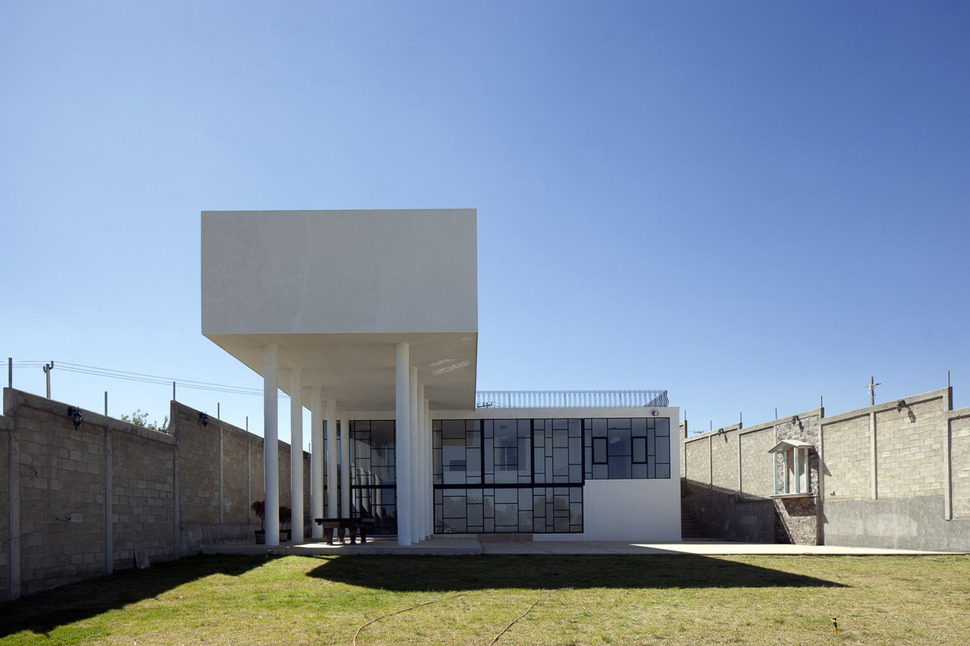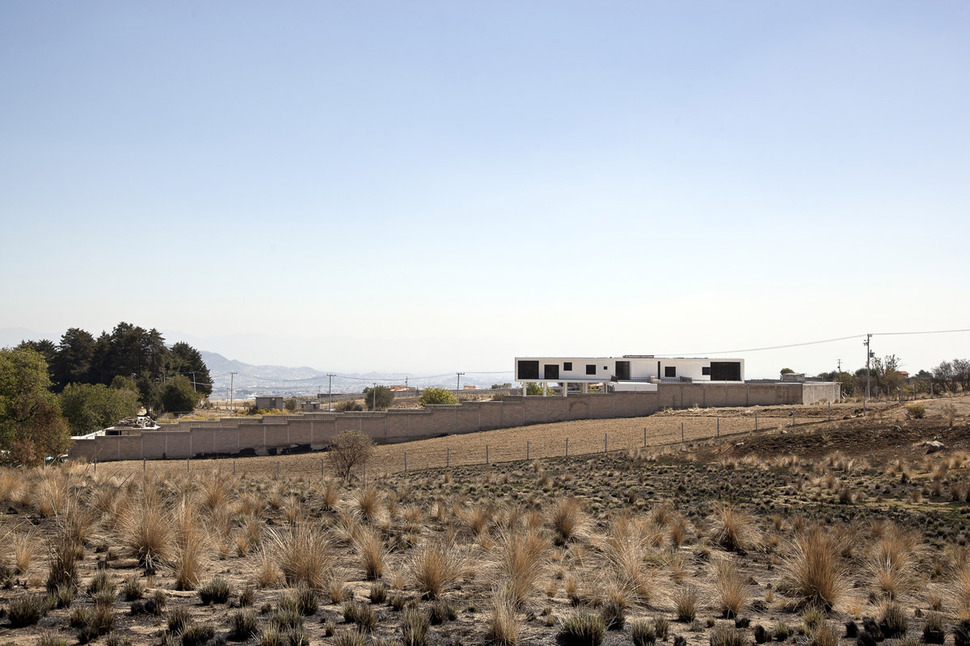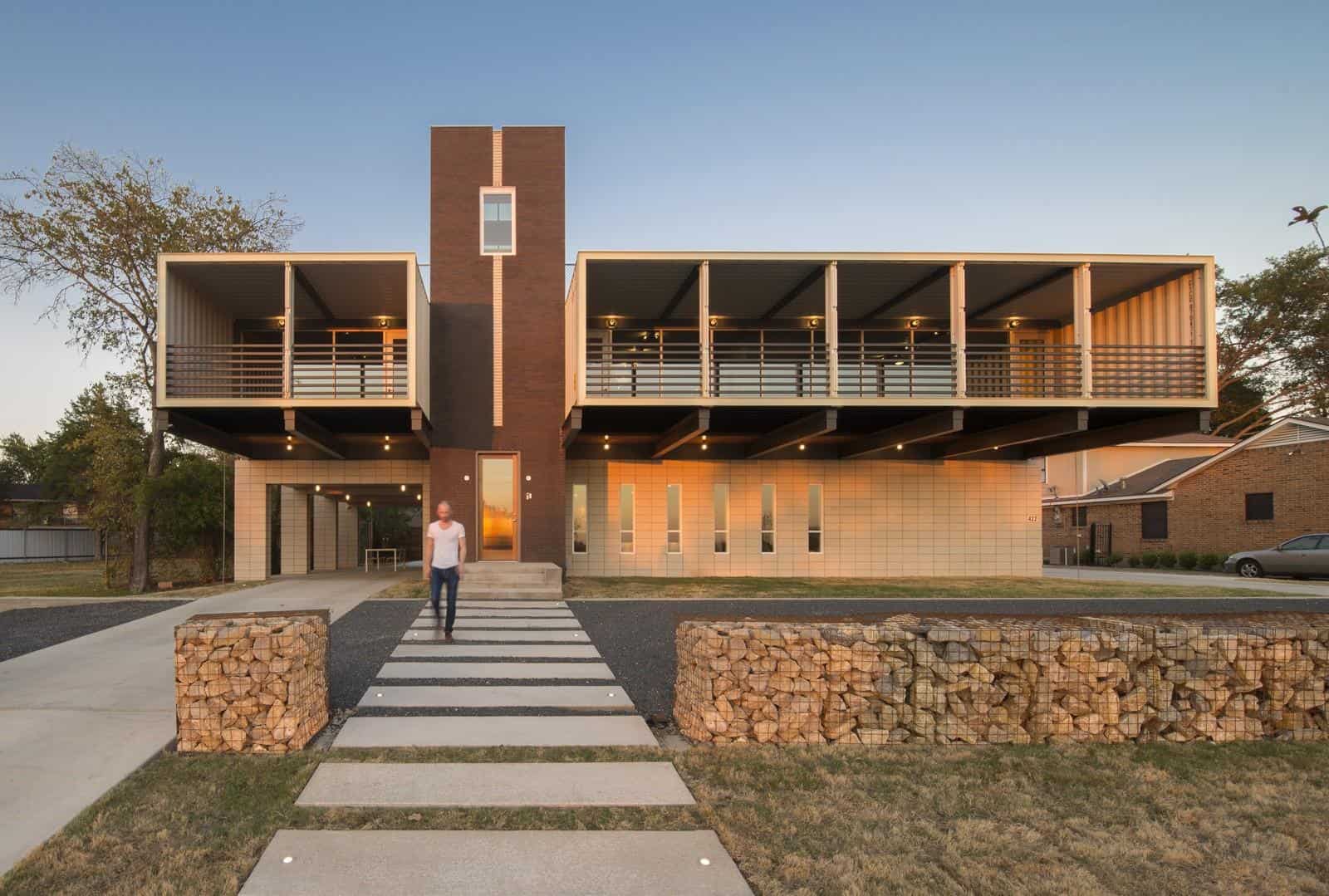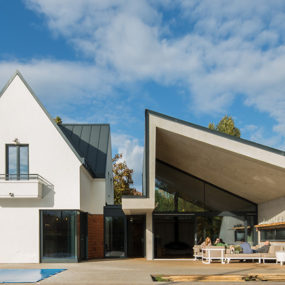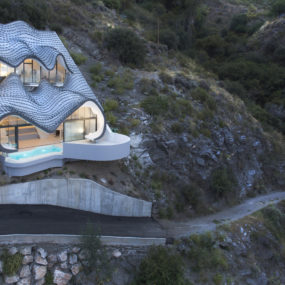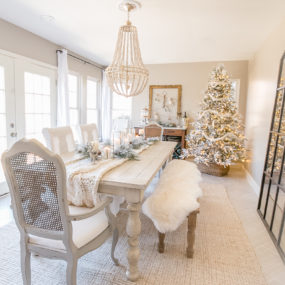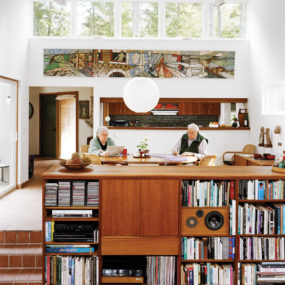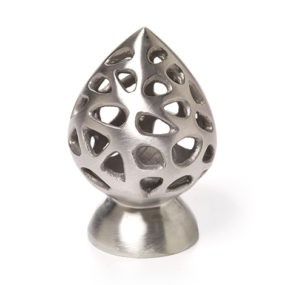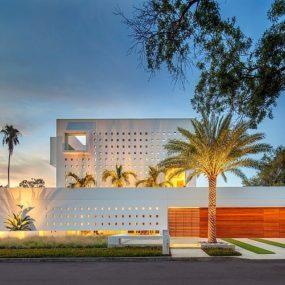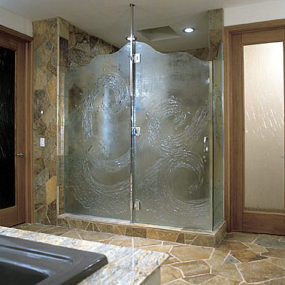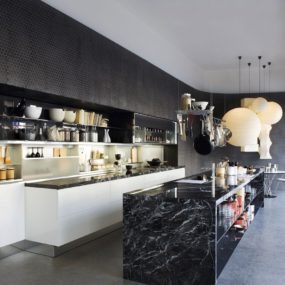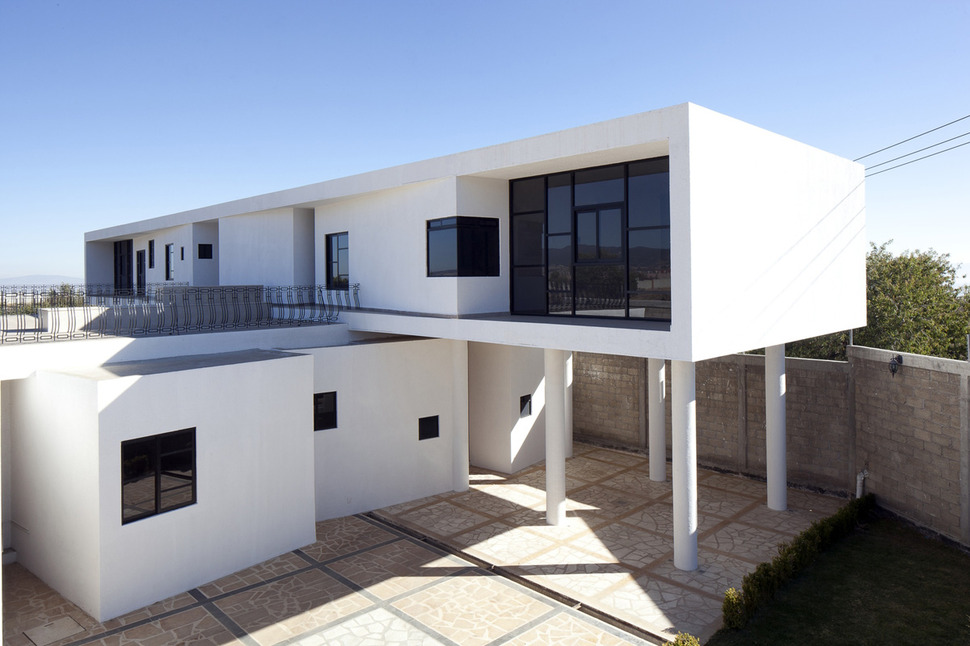
The asymmetrical volumes of this modern hacienda stand out in the arid semi-urban Mexican environment. From afar, only the elongated top part of the house is visible, the rest of the architecture reveals itself gradually as a great surprise. Architects Lucio Muniain et al have designed an odd white building, with volumes that overlap, converge and cantilever. The top part of the structure actually sits perpendicular on the lower rectangular box, with only a small central part overlapping it. This long and thin top module exceeds the base on both sides, with two cantilevering ends that are actually sustained by a multitude of round pillars. Two parallel lines of pillars form the sustaining structure of the house and they seem to pierce through the lower module in order to reach the ground. To the back of the house, four box modules of various sizes pierce obliquely through the facade of the bottom part, forming independent or interconnecting spaces.To the front of the house, the top level cantilevers over a double height, and the very tall and thin pillars that support it make it look like strange giant insect. The shady space underneath it is used as a terrace, for leisure or games. The windows, in thin black metal frames, are of irregular sizes and at irregular heights, giving a feeling of randomness.
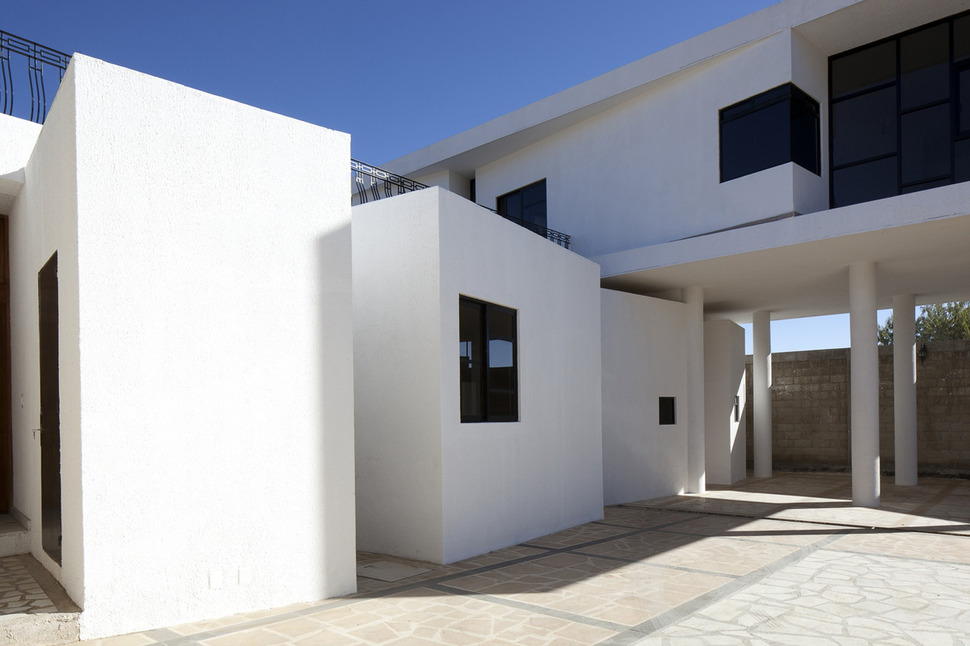
The feeling of randomness is emphasized also by the asymmetrical volumes piercing the back wall, and their irregular sizes and orientations.
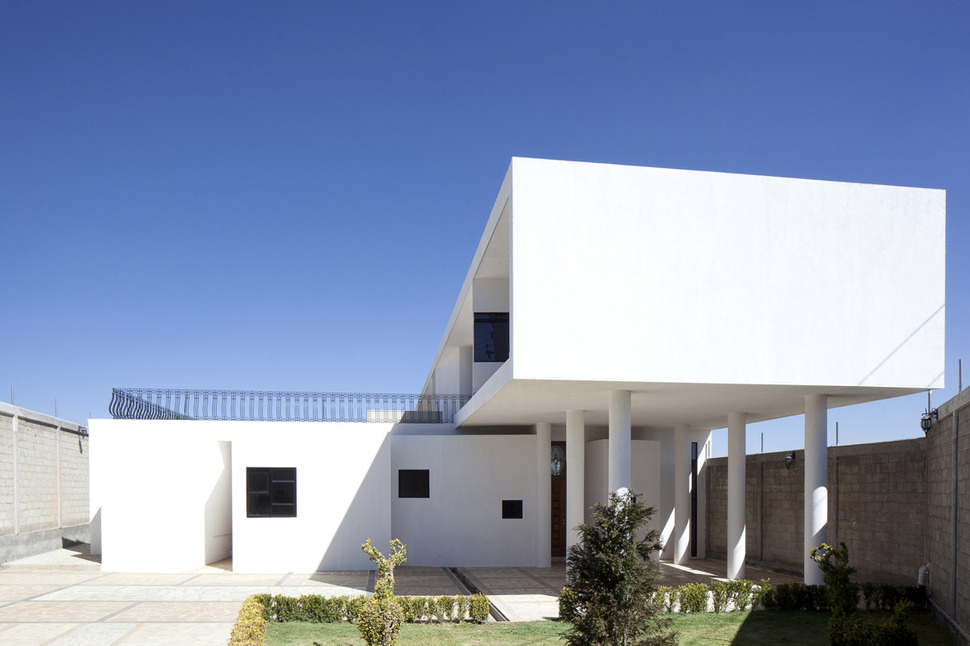
A delicate black metal railing surrounds the top terrace, like lace trimming.
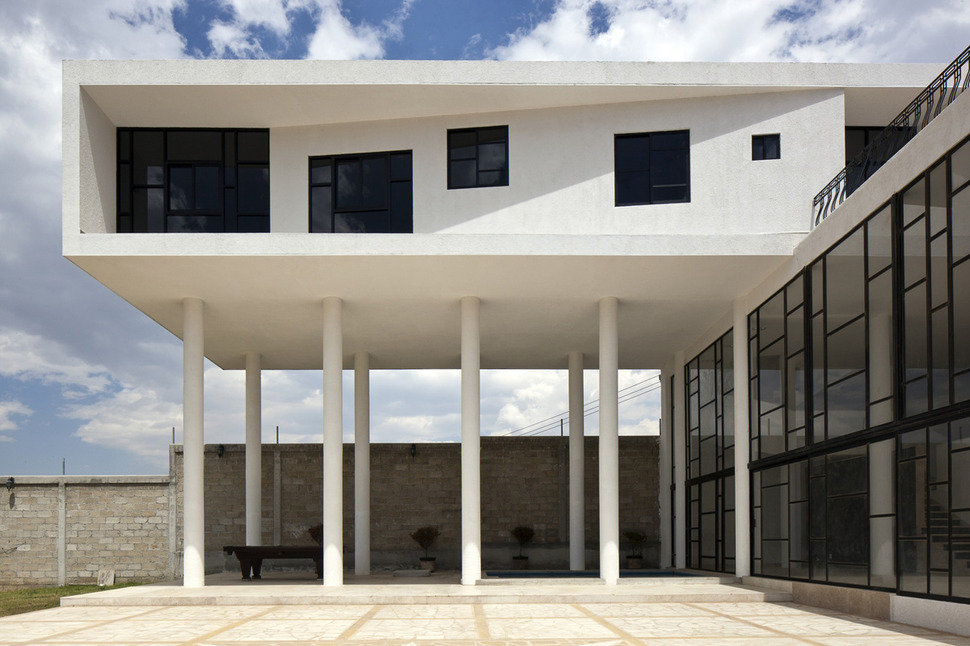
Like bringing order to the chaos, two parallel lines of pillars support the top module lengthwise.
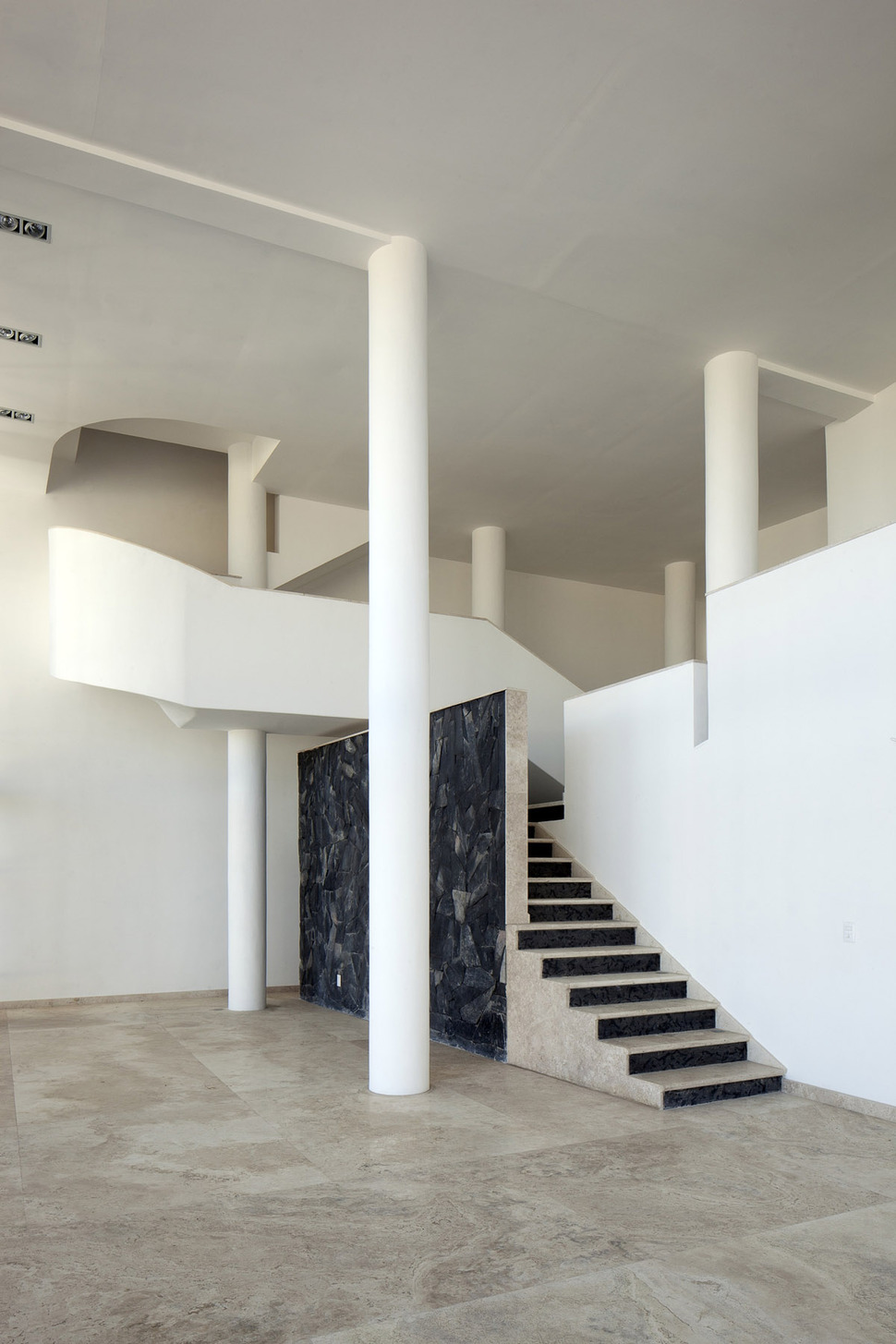
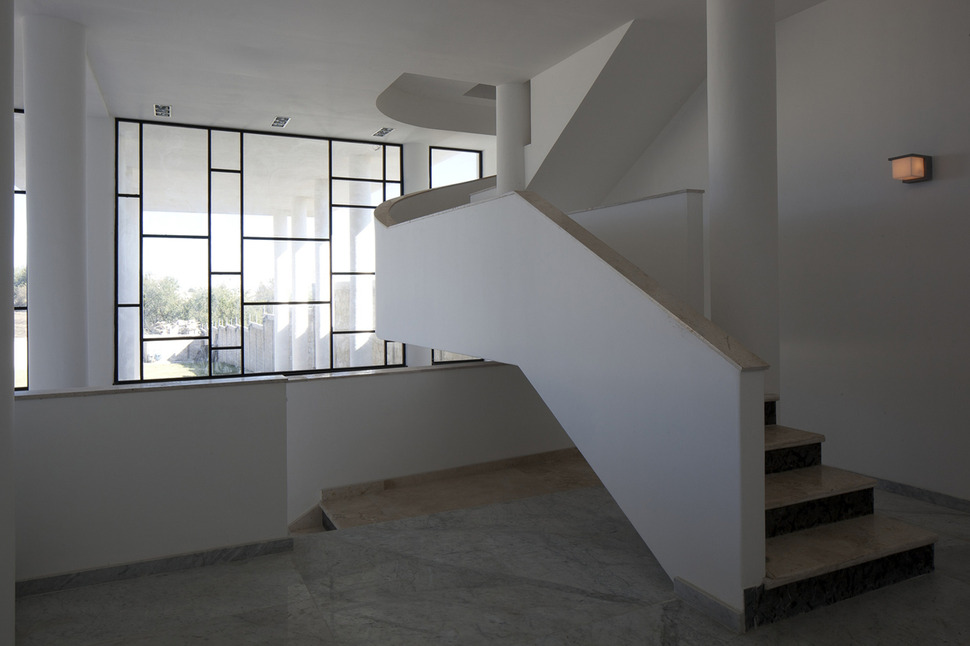
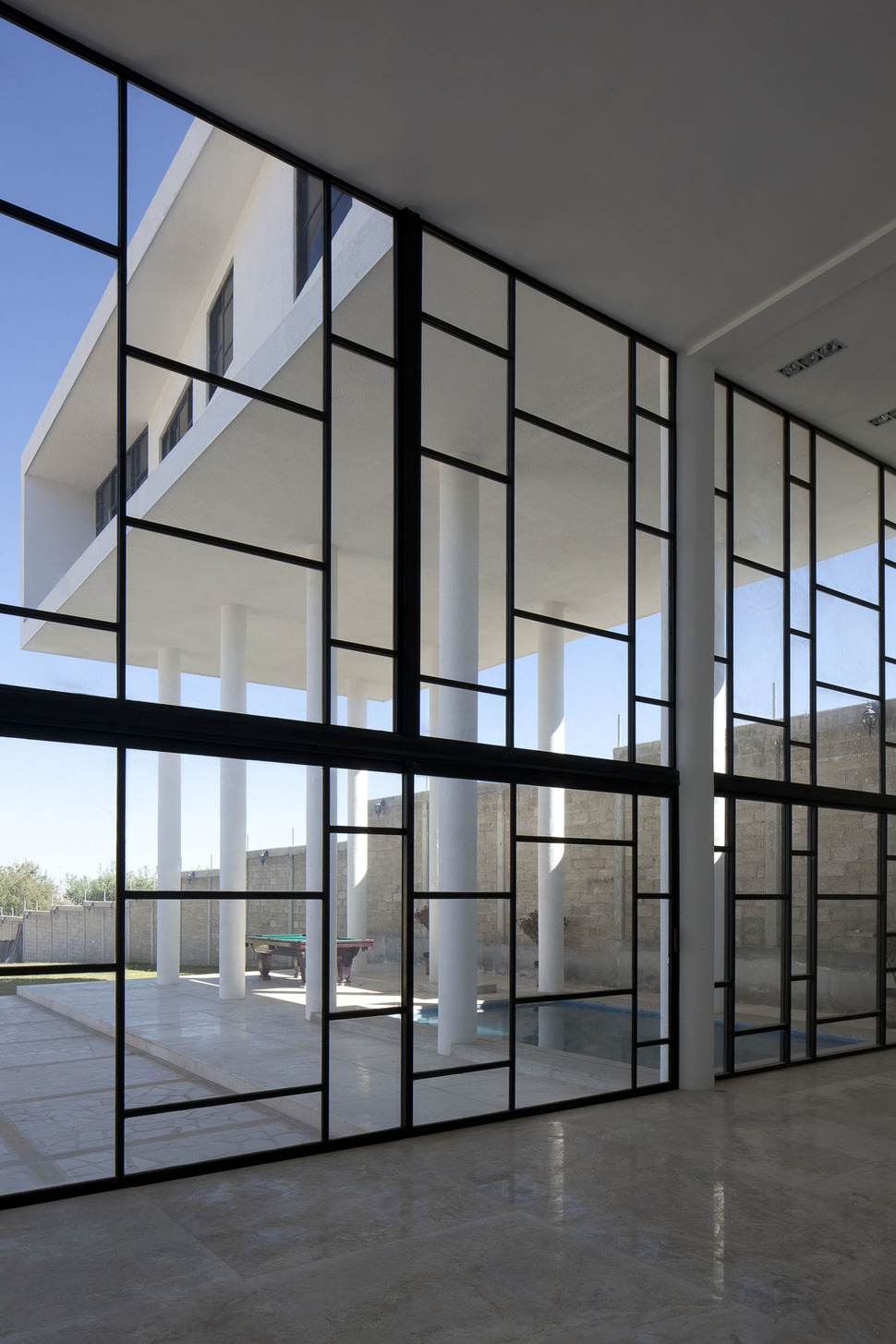
The double height glazed façade looks like a giant transparent Mondrian painting.
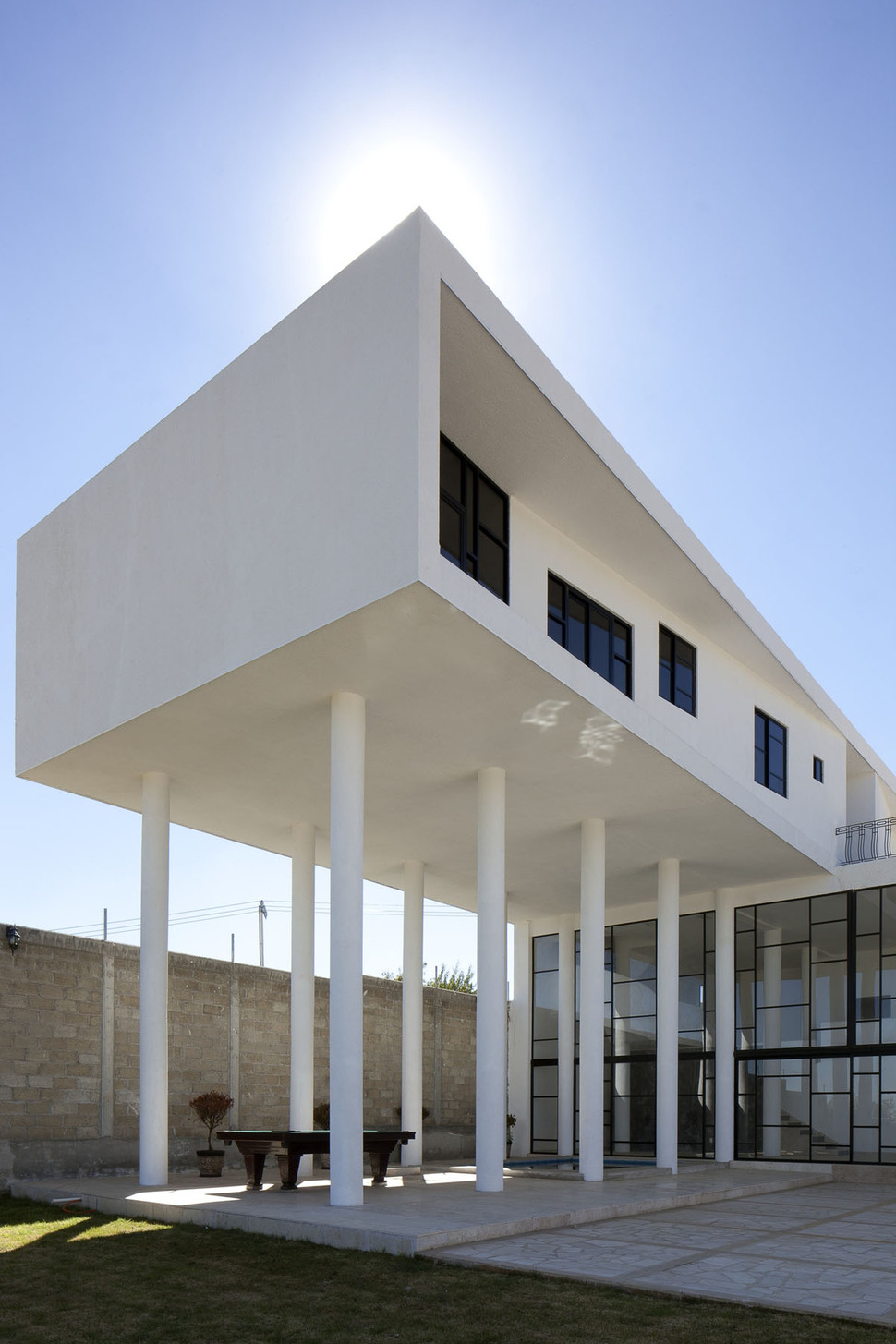
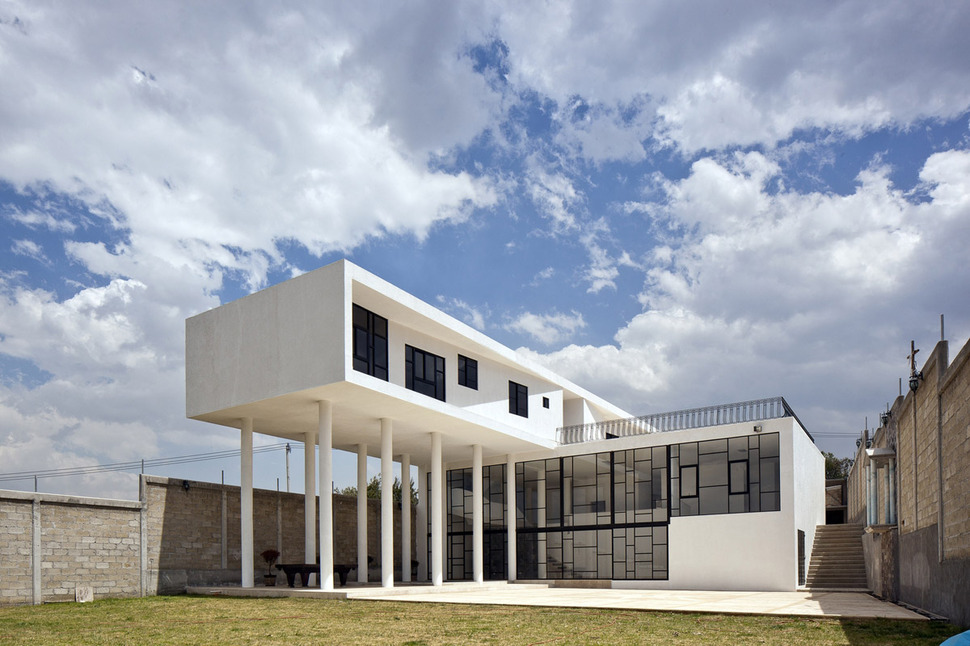
The garden is small and the whole property is hidden to the outside eye by tall brick perimeter walls.
